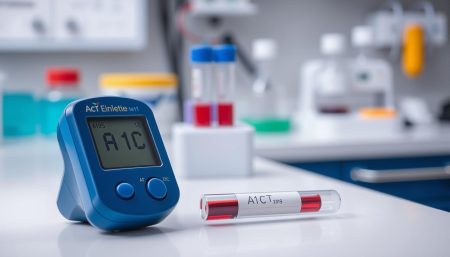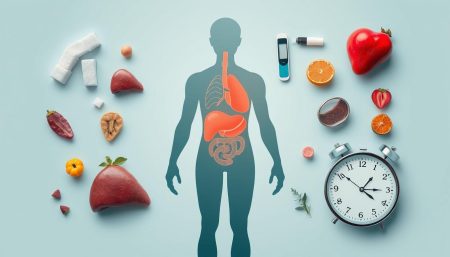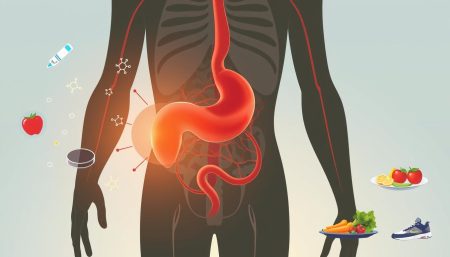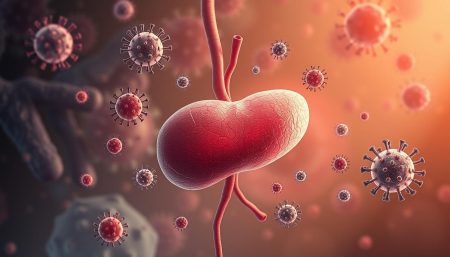Understanding diabetes mellitus type 1 is key to grasping this chronic condition that impacts millions. It’s mainly found in kids and young adults. This diabetes is more than just high blood sugar—it’s a lifelong battle against the body’s immune system.
Dealing with diabetes is vital, as it affects health and wellbeing greatly. With the right managing diabetes strategies, many live active, happy lives. Learning about its causes and care is the first step to thriving with it.
Let’s explore the mysteries of type 1 diabetes together. We’ll share knowledge and strategies tailored to each person’s needs. It’s not just about managing; it’s about mastering life with diabetes.
Understanding Diabetes Mellitus Type 1
Type 1 diabetes, also known as insulin dependent diabetes, is a widespread autoimmune disease. It happens when the immune system attacks the body’s own cells. Unlike type 2 diabetes, where the body resists its own insulin, type 1 diabetes is caused by a lack of insulin. This is because the immune system destroys the beta cells in the pancreas.
The Fundamentals of Type 1 Diabetes
Type 1 diabetes occurs when the immune system mistakenly attacks and destroys the beta cells in the pancreas. These cells are key for making insulin. It usually starts in children and young adults, making them dependent on insulin for life to control their blood sugar.
How the Immune System Affects Type 1 Diabetes
In autoimmune diabetes, the immune system mistakenly attacks, leading to insulin dependent diabetes. People with this condition must use insulin injections or pumps to manage their blood sugar. This autoimmune response not only stops insulin production but also makes managing the disease every day very challenging.
Early Signs and Symptoms of Type 1 Diabetes
It’s vital to spot the early signs of Type 1 diabetes in kids. This is because the disease can sneak up on you but grow fast. Knowing the signs is key for parents and caregivers.
This part talks about the common signs of diabetes in kids. These signs are important to watch for and can mean it’s time to see a doctor.
- Increased thirst and frequent urination: Excess sugar in your child’s blood makes them thirsty and need to pee a lot.
- Weight loss despite good appetite: Without enough insulin, the body can’t use blood sugar for energy.
- Fatigue: Without sugar, your child might feel very tired.
- Blurred vision: High blood sugar can make the lenses in the eyes swell.
- Frequent infections and slow-healing wounds: Diabetes makes it hard for the body to fight off infections and heal wounds.
Spotting these signs early and getting medical help fast can really help your child. It can make their health better.
Examining the Autoimmune Nature of Type 1 Diabetes
Type 1 diabetes is an autoimmune disease. It happens when the body’s immune system attacks insulin-making cells in the pancreas. This article explores how autoimmune responses and genetics lead to this condition. It also looks at how to treat it better.
Autoantibodies and Their Role
In autoimmune diabetes, autoantibodies are early signs of an immune attack on pancreatic cells. These autoantibodies are proteins that the immune system mistakenly attacks. Knowing about them helps doctors diagnose and treat Type 1 diabetes.
Genetic Predisposition and Environmental Triggers
Genetics and environment can increase the risk of Type 1 diabetes. Viruses, certain foods, and chemicals can trigger the disease in people who are genetically prone. Finding these triggers is key to preventing and treating diabetes.
Autoimmune diabetes is a challenge for patients. It also leads to better treatments by understanding genetics and environment.
| Autoantibody Type | Association with Diabetes |
|---|---|
| ICA | Indicates beta cell autoimmunity |
| GADA | Related to glycemic control abnormalities |
| IA-2A | Correlates with rapid progression to diabetes |
| ZnT8A | Associated with an acute onset of symptoms |
Knowing about these markers helps create diabetes treatment options that fit each person’s needs. This is based on their autoimmune profile and genetic predispositions.
The Role of Genetics in Type 1 Diabetes
Understanding the genetic predisposition to diabetes mellitus type 1 is key. Research shows that certain genes can greatly increase the risk of getting type 1 diabetes. This part explains how genes play a role in the disease and what it means for family members.
Scientists have found genetic markers linked to diabetes mellitus type 1. These markers are in DNA areas related to the immune system. This fits with the disease’s autoimmune nature. Families with a history of type 1 diabetes may get genetic tests to see their risk.
| Genetic Marker | Association with Type 1 Diabetes | Relative Risk Increase |
|---|---|---|
| HLA-DR3 or HLA-DR4 | Strong | 5x |
| HLA-DQ | Moderate | 2x – 3x |
| INS VNTR | Mild | 1.5x |
These discoveries highlight the need for genetic testing and counseling for families with type 1 diabetes. This is true, even if many family members have it. Early detection and management can help avoid serious complications.
Insulin Therapy for Type 1 Diabetes Management
In the world of diabetes treatment options, insulin therapy is key for managing Type 1 Diabetes. It’s important to tailor insulin therapy to fit each person’s needs. This helps control blood sugar levels, improving health and daily life.
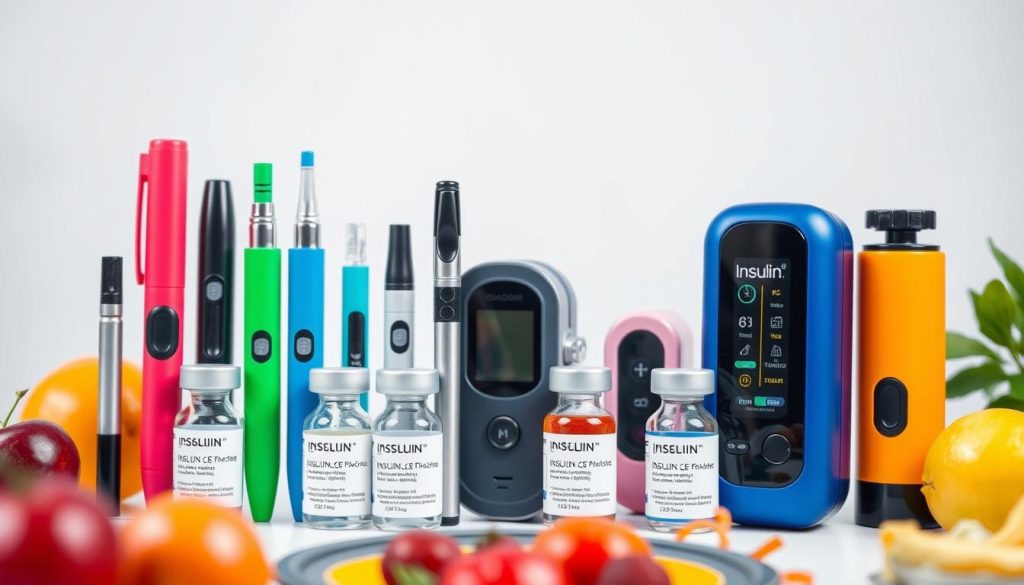
Knowing about the different types of insulin and when to take them is vital. Rapid-acting and long-acting insulins work together. They help manage blood sugar levels like a healthy pancreas would.
| Type | Onset | Peak | Duration |
|---|---|---|---|
| Rapid-acting | 15 minutes | 1 hour | 2-4 hours |
| Short-acting | 30 minutes | 2-3 hours | 3-6 hours |
| Intermediate-acting | 2-4 hours | 4-12 hours | 12-18 hours |
| Long-acting | 1 hour | None | Up to 24 hours |
Each insulin type is made for different blood sugar needs. Rapid-acting insulin is taken before meals to control sugar spikes. Long-acting insulin keeps blood sugar steady all day and night.
Good insulin therapy means always checking and adjusting treatment. It shows how diabetes treatment options today are all about personal care. It’s not just about sugar levels. It’s about making treatment fit into a person’s life, improving their overall well-being.
Fine-Tuning Blood Sugar Monitoring
In managing Type 1 diabetes, being precise with blood sugar monitoring is key. Using advanced tools and methods for tracking glucose levels can greatly improve glucose management. This part explores new monitoring technologies and how to understand the data they give.
Glucose Meters and Continuous Glucose Monitors
Choosing between glucose meters and continuous glucose monitors (CGMs depends on personal needs and lifestyle. Glucose meters are small devices that check blood sugar at specific times. CGMs, on the other hand, track glucose levels all day and night, giving a detailed view of glucose trends.
Interpreting Blood Sugar Levels Accurately
Knowing how to read glucose meters and CGMs is essential for good blood sugar monitoring. These tools help keep blood sugar stable and guide decisions on diet, exercise, and medication. Mastering these devices can lead to better glucose management and a healthier life.
Lifestyle Modifications for Glucose Management
Making lifestyle changes is key for glucose management and managing diabetes. A balanced diet and regular exercise can greatly affect blood sugar levels and health. We’ll look at how diet and exercise help manage Type 1 diabetes and offer tips for daily challenges.
Impact of Diet on Type 1 Diabetes
Diet is very important for managing diabetes and keeping glucose stable. For those with Type 1 diabetes, eating the right amount and type of carbs is vital. Choosing low glycemic index foods and watching carb intake helps avoid big blood sugar swings.
Here’s a table showing how different carbs affect blood sugar:
| Carbohydrate Type | Glycemic Index | Recommendation |
|---|---|---|
| Whole grains (e.g., oats, quinoa) | Low to Medium | Recommended for regular consumption |
| Refined grains (e.g., white bread) | High | Limited consumption advised |
| Legumes (e.g., lentils, beans) | Low | Highly recommended |
| Fruits (e.g., apples, berries) | Low to Medium | Recommended within moderation |
Exercise as a Tool for Managing Diabetes
Regular exercise is great for health and managing diabetes. It makes your body better at using insulin, which helps control glucose. But, it’s important to match exercise with the right carbs and insulin to avoid low blood sugar.
Good exercises include:
- Aerobic activities like walking, cycling, or swimming
- Strength training with weights or resistance bands
- Flexibility exercises, such as yoga or Pilates
It’s best to talk to a healthcare professional to create an exercise plan that fits your health needs and diabetes goals.
Diabetes in Children: Navigating Type 1 Diabetes
Understanding juvenile diabetes is key for families and schools. It’s important to support kids with this condition. This section offers practical tips to improve their quality of life and safety.
Supporting Children and Families
Diabetes can change family life. It’s important to educate families about managing diabetes. Programs can help families learn to handle daily care and diet changes.
Support groups and family therapy are also helpful. They help families adjust to new routines.
Working with Schools for a Safe Environment
Working together, families and schools can ensure kids with diabetes get the care they need. Schools need staff who know how to handle emergencies. They should know how to give insulin if needed.
Good communication between parents and schools is key. It helps kids manage their diabetes without disrupting school.
| Aspect | Strategy | Outcome |
|---|---|---|
| Educational Workshops | Regularly scheduled sessions for students and faculty | Increased awareness and ability to assist in emergencies |
| Individual Health Plans | Custom plans integrated into school routines | Personalized care, fewer complications |
| Emergency Protocols | Clear and practiced response scenarios | Quick and effective management of diabetes crises |
By working together, families and schools can create a supportive environment. This helps kids with diabetes do well in school and socially. It makes managing diabetes a community effort, leading to safer and more inclusive places.
Managing Diabetes during Adolescence
Adolescence brings big changes for those with juvenile diabetes. Hormones shift, and teens want more freedom. This means finding new ways to manage insulin dependent diabetes. It’s all about learning and taking care of yourself to keep blood sugar in check.
Learning to manage juvenile diabetes on your own can be easier with the right help. Here are some tips for teens to stay healthy and handle their diabetes well:
- Take part in teen-focused education programs on insulin dependent diabetes.
- Join peer support groups to share experiences and advice with others.
- Use digital tools and apps to track glucose, food, and insulin, making it easier and fun.
Here’s a quick guide on what’s important for managing juvenile diabetes in teens:
| Core Focus Area | Challenges | Strategies for Management |
|---|---|---|
| Emotional Well-being | Increased stress and risk of depression | Professional counseling, family support, peer groups |
| Educational Needs | Consistency in management amidst varying daily school schedules | Education on self-care, legal rights at school, and coordinating with School Health Teams |
| Hormonal Changes | Fluctuating glucose levels | Regular endocrinologist visits, adjustment of insulin therapy |
| Social Life Impact | Peer pressure and dietary challenges | Social skills training, open communication about condition |
Managing insulin dependent diabetes in teens is complex. It needs a flexible and caring approach. With the right support, teens with juvenile diabetes can live full, healthy lives.
Treatment Options Beyond Insulin: Research and Innovations
Looking into diabetes treatment options has moved beyond just insulin for type 1 diabetes patients. Medical research is making big strides, leading to new ways to manage diabetes. These new treatments aim to control blood sugar better and make insulin therapy easier.

Research by top pharmaceutical companies is making waves in type 1 diabetes care. Eli Lilly’s work, for example, is showing great promise in diabetes and other health areas. Their research into obesity and sleep apnea shows a broader view of health care. You can learn more about it here.
There’s also a big focus on tech-based diabetes treatment options. This includes devices like continuous glucose monitors and closed-loop systems. These systems adjust insulin doses automatically, based on blood sugar levels. They help manage diabetes better and lower the risk of serious problems.
- Enhanced monitoring devices
- Artificial pancreas developments
- Gene therapy possibilities
It’s key for patients and doctors to keep up with these new developments. As research keeps advancing, the dream of easier, more effective diabetes care is getting closer.
Psychosocial Aspects of Living with Insulin Dependent Diabetes
Managing insulin dependent diabetes is more than just physical health. It also involves psychological and social challenges. Understanding these is key to managing diabetes well.
Emotional Well-Being and Mental Health
Diabetes can bring a range of emotions, from frustration to hope. Patients often feel stressed and scared about health issues. To manage diabetes, it’s important to tackle these feelings through therapy and self-care.
- Cognitive Behavioral Therapy (CBT) to change negative thoughts
- Mindfulness and stress reduction techniques
- Regular talks with mental health experts
Building a Support Network
Having a strong support network is vital for those with insulin dependent diabetes. This network includes family, friends, healthcare providers, and community groups. Each plays a unique role in supporting the patient.
- Family and friends offer emotional support and help daily
- Healthcare professionals give medical advice and adjust treatments
- Community groups let people share experiences and learn from others
A good support system helps with diabetes management and makes patients feel less alone.
| Support Type | Benefits | Examples |
|---|---|---|
| Emotional | Reduces feelings of isolation, provides encouragement | Family, close friends |
| Medical | Helps in optimizing treatment and managing symptoms | Endocrinologists, Diabetes educators |
| Community | Share experiences, gain practical advice | Diabetes support groups, online forums |
Technological Advances in Type 1 Diabetes Care
Diabetes treatment has changed a lot thanks to new technology. These advances help people with type 1 diabetes live better and manage their condition easier. Now, technology is key in caring for diabetes today.
Insulin Pumps and How They Work
Insulin pumps are small devices that give insulin all day through a tiny tube under the skin. They’re a better choice than taking insulin shots many times a day. You can set how much insulin you get based on what you eat and your blood sugar.
- Simplified glucose management
- Reduced frequency of injections
- Improved blood sugar regulation
Future Trends in Diabetes Technology
The future of diabetes tech looks bright with new ideas like artificial pancreas systems and bioengineered insulin cells. These could make insulin delivery automatic and might even last longer. Soon, diabetes care will blend digital and bioengineering, making life easier for patients.
As diabetes tech keeps getting better, we’ll see more smart systems and new treatments. These will help people with type 1 diabetes live full, healthy lives. The goal is to help them enjoy life without letting diabetes hold them back.
Preventive Measures and Risk Reduction
Medical research is making big strides in managing and preventing diabetes mellitus type 1. It’s focusing on new vaccine research and ways to avoid serious problems like diabetic ketoacidosis. These efforts are key to reducing risks.
Vaccine Research for Type 1 Diabetes
New vaccine research is trying to change how we fight type 1 diabetes. Early studies show that some vaccines might help lower the risk of getting diabetes. Trials are underway to see if these vaccines can safely delay or prevent type 1 diabetes.
This research is a big deal. It’s being led by many healthcare groups around the world. They’re working together to make a big difference in diabetes care.
Understanding and Preventing Diabetic Ketoacidosis
Diabetic ketoacidosis (DKA) is a big risk for people with type 1 diabetes. It’s important to catch the warning signs early and manage them well. Programs that teach patients how to watch for symptoms are key.
These programs help patients know how to check their blood sugar and ketones. They also teach the importance of staying hydrated and using insulin correctly.
By using these strategies, we can improve life quality for people with type 1 diabetes. We can also lower hospital rates for serious problems like DKA. The mix of vaccine research and education is a major step forward in fighting diabetes.
Travel and Type 1 Diabetes: Tips for Managing on the Move
Traveling with type 1 diabetes requires careful planning. You want to enjoy new places without worrying about your health. It’s important to know how to manage your diabetes while traveling.
Keeping your insulin safe and easy to get to is key. You should worry about temperature changes and damage before you leave.
Changing your medication schedule for different time zones can be tricky. But it’s necessary to avoid blood sugar problems. Talk to your doctor before you go to make a plan that fits your trip.
- Consult your doctor several weeks before your trip to discuss travel plans.
- Gather necessary documents, such as a doctor’s note and a prescription for security checks.
- Wear a medical alert bracelet at all times.
Here are some tips for storing insulin and supplies:
- Use insulated bags to keep insulin cool but not frozen.
- Carry backup batteries for your glucose meter and insulin pump.
- Keep snacks and glucose tabs on hand for low blood sugar levels.
| Preparation | On the Move |
|---|---|
| Consult with healthcare providers | Adjust insulin for time zones |
| Secure and pack medical supplies | Maintain regular monitoring |
| Gather needed documentation | Carry snacks for emergencies |
With careful planning, people with type 1 diabetes can travel without stress. The secret is to plan well and have a plan B for surprises.
Complications and Co-morbidities Associated with Juvenile Diabetes
It’s important to know about the complications of juvenile diabetes. These issues affect different parts of the body. This shows why treating diabetes well is key.
Chronic Complications: Heart, Kidneys, Eyes, and Nerves
Long-term problems from juvenile diabetes can be serious. High blood sugar can cause heart disease, kidney damage, eye problems, and nerve damage. These issues can really hurt your quality of life. They need constant care.
- Heart: Increased risk of coronary artery disease and stroke.
- Kidneys: Diabetic nephropathy can lead to kidney failure.
- Eyes: Diabetic retinopathy can cause vision loss.
- Nerves: Diabetic neuropathy may cause numbness in the hands and feet.
Managing Acute Complications and When to Seek Help
It’s critical to handle acute complications quickly. Hypoglycemia (low blood sugar) and hyperglycemia (high blood sugar) need fast action.
- Hypoglycemia: Symptoms include shaking, sweating, and confusion. Quick carbohydrate intake or glucagon injections are effective treatments.
- Hyperglycemia: Signs are frequent urination, increased thirst, and high glucose levels. Adjusting insulin doses and hydration are key steps.
Getting medical help is vital if symptoms don’t get better or get worse. This could mean serious issues like diabetic ketoacidosis or severe hypoglycemia.
Nutritional Counseling and Type 1 Diabetes
Managing Type 1 Diabetes is more than just insulin shots. It involves a detailed plan for glucose management, with nutritional counseling being key. This helps people make smart food choices to keep their blood sugar stable. A dietitian or nutritionist is vital in creating a meal plan that works well for everyone.
Good glucose management starts with knowing how to pick the right foods. Nutritional counseling teaches people how different foods affect their blood sugar. It also helps with learning how to count carbs, a critical skill for Type 1 Diabetes management.
Today, focusing on individual health is more important than ever. Dietitians play a big role in creating meal plans that fit each person’s needs. They consider things like lifestyle, food preferences, and metabolism. The goal is to balance blood sugar and promote a healthier lifestyle for the long term.
FAQ
Q: What Are the Causes of Type 1 Diabetes Mellitus?
A: Type 1 diabetes is an autoimmune disease. It happens when the immune system attacks and destroys insulin-making cells in the pancreas. This leads to a lack of insulin.
Q: How Is Type 1 Diabetes Different from Type 2?
A: Type 1 diabetes is an autoimmune disease that often starts in childhood or adolescence. It needs insulin therapy. Type 2 diabetes, on the other hand, starts in adulthood. It’s linked to lifestyle and can sometimes be managed with diet and oral medications.
Q: What Are the Early Signs and Symptoms of Type 1 Diabetes in Children?
A: Early signs include increased thirst and urination, hunger, weight loss, fatigue, blurred vision, and frequent infections. It’s important to recognize these symptoms early for quick diagnosis and treatment.
Q: How Do Genetics Influence the Risk of Developing Type 1 Diabetes?
A: Genetics play a big role in type 1 diabetes. Certain genes increase the risk. But, not everyone with these genes will get the disease. This shows that environment also plays a part.
Q: Can Lifestyle Changes Affect Glucose Management in Type 1 Diabetes?
A: Yes, diet and exercise are key to managing glucose levels. Eating a balanced diet and staying active can help keep blood sugar levels healthy.
Q: What Technologies Are Available for Blood Sugar Monitoring?
A: There are many technologies for monitoring blood sugar. These include traditional fingerstick glucose meters and continuous glucose monitors (CGMs). CGMs give real-time insights into glucose levels all day and night.
Q: How Can Insulin Therapy Be Tailored to Individual Needs in Type 1 Diabetes?
A: Insulin therapy can be customized for each person. It depends on their daily routine, eating habits, and glucose levels. Different types of insulin and insulin pumps can be used to meet the body’s needs.
Q: What Are the Treatment Options Beyond Insulin for Type 1 Diabetes?
A: Beyond insulin, treatments include pramlintide and continuous glucose monitoring systems. Research into immunotherapy and beta-cell transplantation also shows promise.
Q: How Can Children with Type 1 Diabetes Be Supported at School?
A: Schools should support children with type 1 diabetes. They need trained staff, a diabetes management plan, and easy access to food and glucose monitoring. They also need breaks for managing their condition.
Q: What Are the Psychosocial Challenges of Living with Insulin Dependent Type 1 Diabetes?
A: Living with type 1 diabetes can be tough. It can cause anxiety, depression, and stress. Managing the disease, monitoring glucose levels, and dealing with complications can be challenging.
Q: How Are Technological Advances Shaping the Future of Type 1 Diabetes Care?
A: New technologies are changing type 1 diabetes care. Insulin pumps, artificial pancreas systems, and smart insulin pens are making glucose management easier and more accurate.
Q: What Preventive Measures Can Reduce the Risk of Type 1 Diabetes Complications?
A: Preventive measures include controlling blood sugar, regular medical check-ups, healthy eating, and staying active. Staying informed about the latest treatments and management strategies is also important.
Q: What Tips Can Help Manage Type 1 Diabetes While Traveling?
A: When traveling, carry enough medical supplies and keep insulin cool. Stick to a medication schedule and adjust for time zone changes to avoid blood sugar problems.
Q: How Can Nutritional Counseling Benefit Individuals with Type 1 Diabetes?
A: Nutritional counseling helps make informed food choices. It teaches how different foods affect blood sugar. It also helps with carb counting and insulin management.













